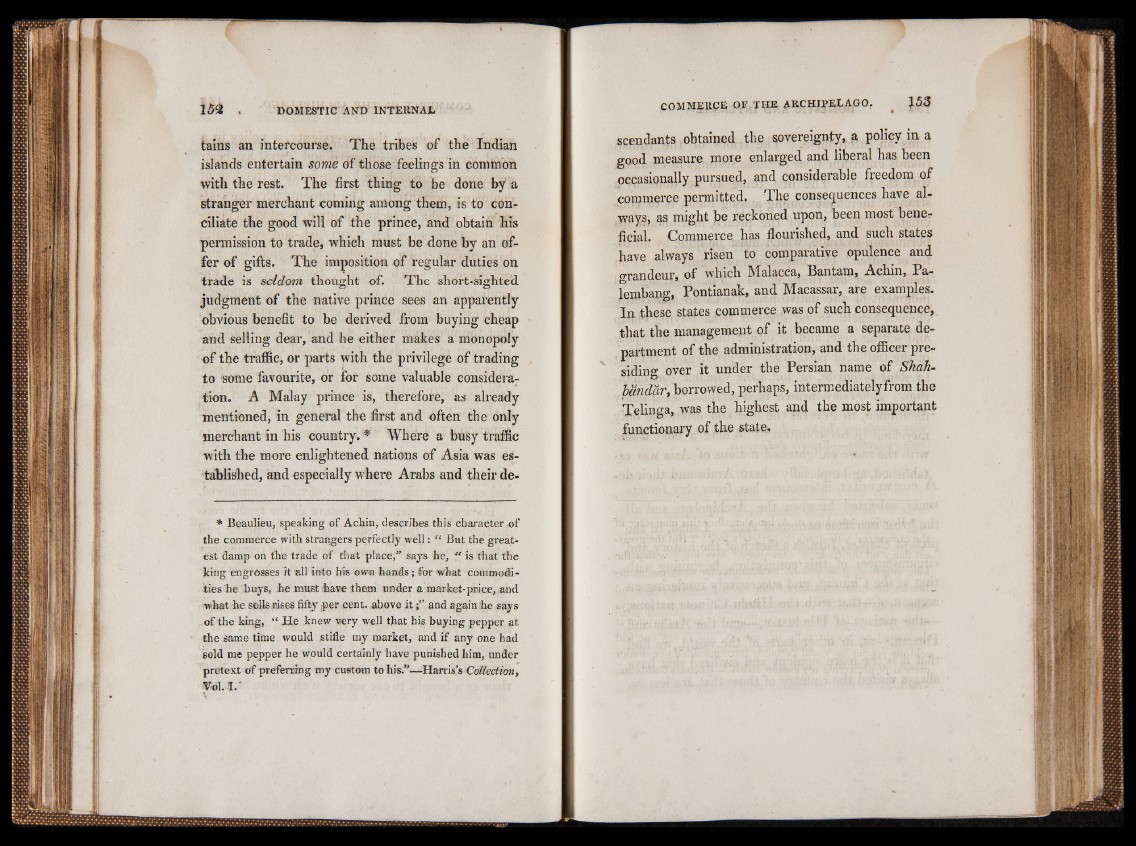
tains an intercourse. The tribes of the Indian
islands entertain some of those feelings in common
with the rest. The first thing to be done by a
stranger merchant coming among them, is to conciliate
the good will of the prince, and obtain his
permission to trade, which must be done by an offer
of gifts. The imposition of regular duties on
trade is seldom thought of. The short-sighted
judgment of the native prince sees an apparently
obvious benefit to be derived from buying cheap
and selling dear, and he either makes a monopoly
of the traffic, or parts with the privilege of trading
to some favourite, or for some valuable considerar
tion. A Malay prince is, therefore, as already
mentioned, in general the first and often the only
merchant in his country. * Where a busy traffic
with the more enlightened nations of Asia was established,
and especially where Arabs and their de*
Beaulieu, speaking of Achin, describes this character -of
the commerce with strangers perfectly well: “ But the greatest
damp on the trade of that place," says he, ff is that the
king engrosses ft all into his own hands; for what commodities
he buys, he must have them under a market-price, and
-what he sells rises fifty .per cent, above i t a n d again he says
of the king, “ H e knew very well that his buying pepper at
the same time would stifle my market, and if any one had
sold me pepper he would certainly have punished him, under
pretext of preferring my custom to his.”—Harris’s Coliedion,
V{ ol. 1.'
scendants obtained the sovereignty, a policy in a
good measure more enlarged and liberal has been
occasionally pursued, and considerable freedom of
commerce permitted. The consequences have always,
as might be reckoned upon, been most bener
ficial. Commerce has flourished, and such states
have always risen to comparative opulence and
grandeur, of which Mhlacca, Bantam, Achin, Pa-
lembang, Pontianak, and Macassar, are examples.
In these states commerce was of such consequence,
that the management of it became a separate department
of the administration, and the officer presiding
over it under the Persian name of Shah-
landfir, borrowed, perhaps, intermediatelyfrom the
Telinga, was the highest and the most important
functionary of the state«